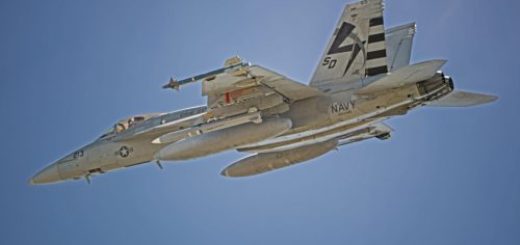ICAO condemns Russia and North Korea over GPS signal jamming
The International Civil Aviation Organization (ICAO) strongly condemned repeated interference with satellite navigation systems by Russia and North Korea, calling the actions violations of the 1944 Chicago Convention. The resolution, issued as the ICAO triennial assembly in Montreal concluded on October 5, 2025, marked one of the agency’s sternest rebukes to date of state actors accused of Global Navigation Satellite System (GNSS) disruption.
The Assembly passed two resolutions supporting earlier ICAO findings that repeated GPS interference from Russia and North Korea violates international aviation law. The Assembly called on both countries to immediately halt jamming activities and comply fully with their obligations to maintain interference-free navigation for civil aviation.
“Incidents of GNSS RFI have continued to recur in disregard of the concerns repeatedly expressed by the ICAO Council,” the organization said. The Assembly stressed the critical importance of preserving the safety and security of international flight operations, saying that any jamming or spoofing aimed at civil systems risks lives and undermines trust in global air navigation.
Russian GPS interference a growing pattern
The resolution singled out Russia for its role in destabilizing navigation in European airspace. Over recent years, nations across the Baltic Sea region, Eastern Europe, and the Northern airspace have reported unexplained signal disruptions interfering with GPS and GNSS services. Estonia and Finland, among others, have publicly accused Russia of jamming civilian navigation systems in their airspace — allegations Moscow denies.
In one high-profile 2025 incident, the plane carrying European Commission President Ursula von der Leyen reportedly experienced GPS disruption near Plovdiv, Bulgaria, which Bulgarian authorities say may have been caused by external interference. Though the aircraft landed safely using backup systems, the episode heightened concerns over the scale of such electronic operations.
Researchers in Poland have traced several jamming signals to Russian sites in the Baltic Sea region, identifying persistent radio frequency outputs aimed at confusing or blocking navigation signals. Russian deployments of systems like the R-330Zh Zhitel — a known electronic warfare jammer capable of targeting both communications and GNSS bands — are regularly flagged in analyses of Moscow’s operations near frontlines.
The disruption campaign has earned a nickname in regional reporting: the “Baltic Jammer” or “Baltic interference network,” leveraging arrays of jamming and spoofing equipment concentrated in Kaliningrad and along Russia’s western flank. Some instances of spoofing (crafting false navigation signals) have raised particular alarm, as they can feed incorrect positional data into onboard systems — far more insidious than blunt signal jamming.
North Korea GPS interference also rebuked
The Assembly action also underscored repeated disruptions by North Korea, with ICAO Council previously flagging interference originating in the Incheon Flight Information Region (FIR) since October 2024. The Council had urged DPRK to cease such activities and comply with prior decisions to safeguard aircraft in adjacent corridors.
South Korea reported that these disruptions affected more than 4,400 flights from over 20 countries between October 2024 and February 2025, according to public statements submitted to ICAO. The ICAO Council had placed the matter on the Assembly’s agenda under Article 54(k) of the Convention.
The timing of the condemnation underscores ICAO’s resolve: the Assembly issued the statements as its 42nd session in Montreal drew to a close. It was a clear signal that the global aviation community is unwilling to tolerate disruptions that threaten navigation integrity.
While ICAO does not possess enforcement mechanisms to force states to comply, the public rebuke marks one of the most decisive uses of diplomatic pressure in the agency’s history. By reaffirming that GNSS is essential for safe, efficient air travel, ICAO aims to mobilize all member states to deter interference and demand accountability.
As aviation increasingly relies on satellite navigation, the release notes, any disruption — whether by accident or intent — can cascade into serious safety hazards. ICAO pledged continuing oversight and cooperation with national regulators to investigate interference, support affected states, and reinforce the principle that GNSS space must remain free from harmful disturbance. The post ICAO condemns Russia and North Korea over GPS signal jamming appeared first on AeroTime.
The International Civil Aviation Organization (ICAO) strongly condemned repeated interference with satellite navigation systems by Russia and North…
The post ICAO condemns Russia and North Korea over GPS signal jamming appeared first on AeroTime.






